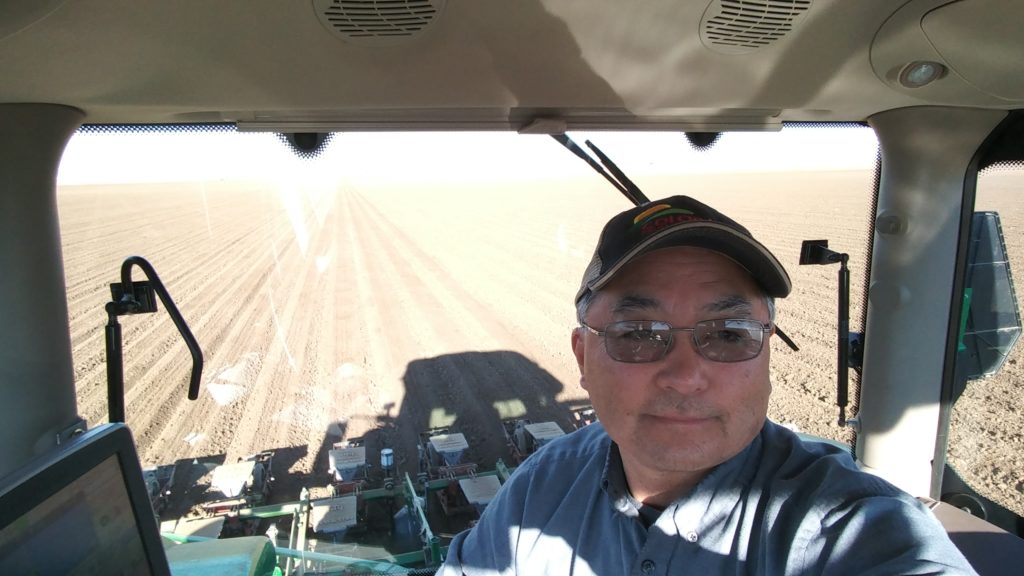

Jan 7, 2020Sakata Farms honored as a ‘trailblazer’
Robert Sakata is a firm believer in growers stepping up to the microphone, but he hesitated this spring just before addressing a group of his peers in Colorado agriculture.
Sakata Farms – a respected vegetable and grain grower – was being honored as a “Trailblazer” by the Colorado Farm Bureau and the Denver Business Journal. He had written a speech but was almost intimidated by the sight of his many esteemed colleagues who make up Colorado’s diverse agricultural sector.
“I totally freaked out,” Sakata said. “Each and every one of those (audience members) – and hundreds of others – were equally deserving.”
Even so, Sakata Farms has earned its place among other farms and ranchers.
A growing legacy
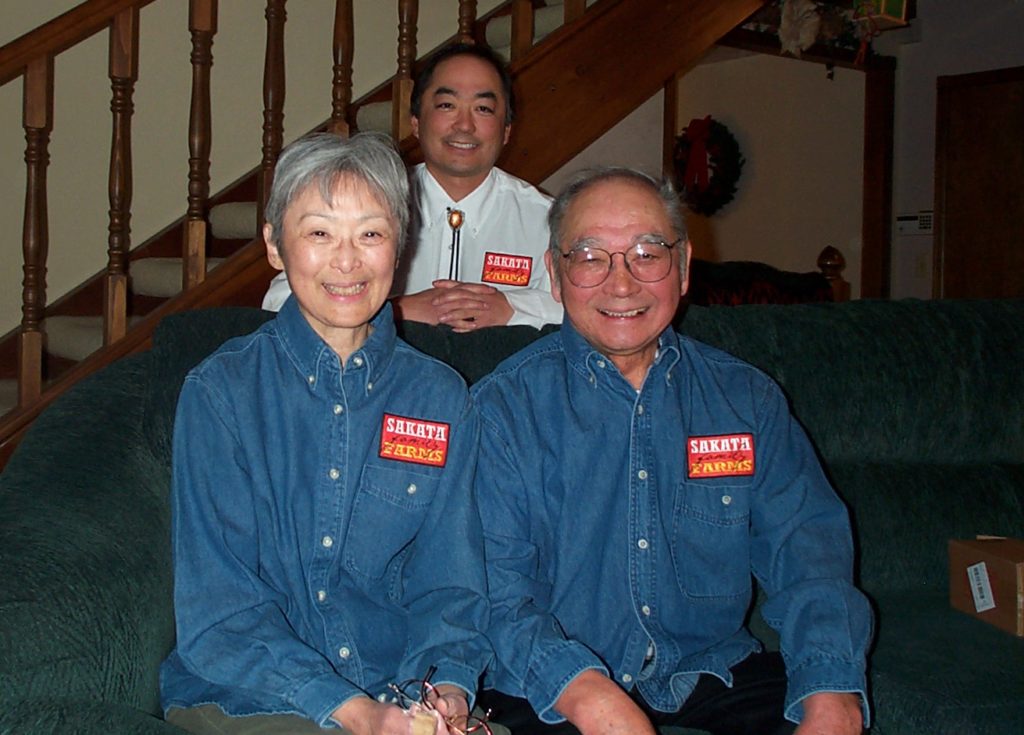

“Robert’s contributions to Colorado agriculture are matched by very few people and his commitment to advancing and protecting the agriculture industry is recognized by people across the state,” said Colorado Farm Bureau Vice President of Advocacy Shawn Martini. “He and his family continue to innovate and adapt to changes in the industry and are an example for all agriculture producers to follow.”
Robert in many ways follows in the footsteps of his father. Bob Sakata is now in his 90s, but remains active and was able to attend the celebration with his son. In a news media interview, Robert and a reporter from the Business Journal took turns asking Bob questions.
Bob Sakata has quite a story to tell – he and his family were living in San Francisco during World War II and lost everything when they were relocated to an internment camp in Topay, Utah. He came to Colorado when Gov. Ralph Carr allowed Japanese Americans to relocate there. According to the Colorado Business Hall of Fame, Bob worked for a Brighton dairyman named Bill Schluter, who in 1944 loaned Bob and Joanna Sakata $6,000 to purchase 40 acres of farmland.
That was the humble start to farm that today encompasses 2,500 acres of vegetables and grain. Bob Sakata has served on numerous committees, including the National Onion Growers Association board of directors. He was also appointed to the USDA commodity credit advisory board by President Richard Nixon and reappointed by President Gerald Ford, according to the Colorado Business Hall of Fame.
Robert Sakata has followed in his father’s footsteps, but the route has not been as direct. He didn’t always want to farm.
“I saw how hard my parents worked,” he said.
Robert earned a degree in biochemistry, and was a researcher bent on curing cancer before becoming disillusioned with the competitive nature of modern laboratories.
“I was kind of down on life,” he said. He and taught skiing to 3- to 6-year-old children, and later moved to California to tend bar and work in restaurants before returning to the family farm.
“I think I came to the sudden realization that, ‘What a great opportunity I have!’” Robert said. “That, maybe, the full circle of trying to cure cancer was back on the farm growing the fresh fruits and vegetables that we know are so important for a healthy life.
“Luckily, my parents and our staff welcomed me back and I’ve been there and happy ever since.”
Like his father, Robert Sakata has worked hard on his own farm and abroad to address challenges facing the collective agriculture industry. During a 2018 visit to Sakata Farms, U.S. Secretary of Agriculture Sonny Perdue, Perdue noticed a T-shirt that defined farming as “the art of losing money while working 400 hours a month to feed people who think you are trying to kill them.” He posed for a photo with Robert and the T-shirt.
Good labor
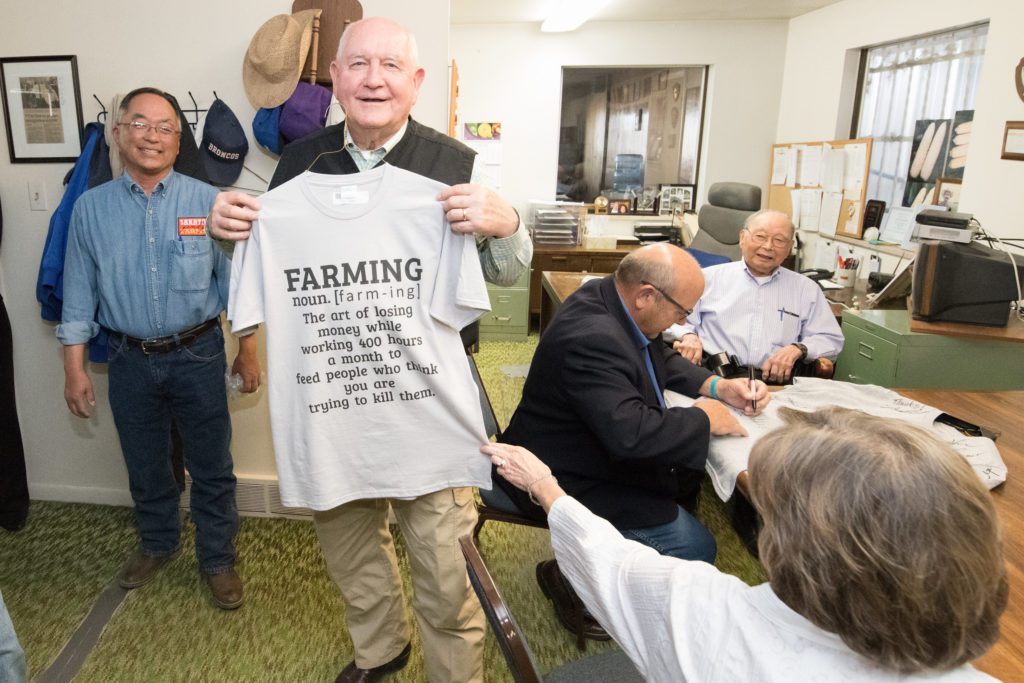

In 2019, Robert and his crew had to rush to harvest onions before a freeze.
“All of our staff worked some hard, long hours,” Sakata said. “Luckily, we knew about seven days in advance the cold front was coming through. We kind of set out a goal for ourselves of how many acres we had to do per day. I’m just so proud of my staff, that 9 p.m. the night that it really got cold, we finished.” The harvest was doubly important because a “disastrous” 2018 onion crop had been marred by hailstorms.
Sakata Farms grows pinto beans, onions, grain corn, silage corn and winter wheat. Robert made the difficult and emotional decision in 2018 to quit growing sweet corn when finding seasonal labor became too expensive. He since has focused on onions and is able to keep a full-time farm staff employed year-round between growing and grading the red, white and yellow storage onions.
Each year, he stops irrigation for a month to “field-cure” the onions, and after the harvest finishes in October, the team starts up the grading operation. The team then begins grading, packing and shipping onions each day.
“We’re not huge – we maybe ship our three or four loads per day,” Sakata said. “Normally we have enough onions that if we market a couple loads of onions a day, we’ll be done with our onions in February or March, and that’s perfect timing because that’s when we’re back out in the field again.”
Waterworks
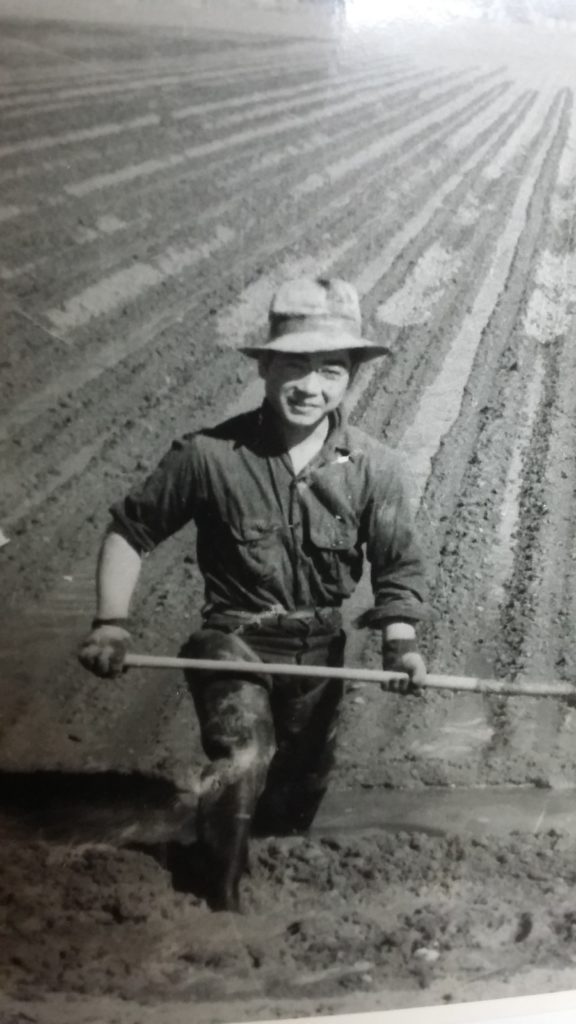

Robert Sakata has devoted countless hours to serving on the leadership of industry groups. The current president of the Colorado Fruit and Vegetable Growers Association, he’s a member of many different water groups and served for 15 years on Colorado’s Water Quality Control Commission.
Water access is a top challenge for many Colorado growers – second only to labor. The average rainfall in Colorado is about 10 inches a year, he said. Expanding municipal water systems by retiring farmers’ senior water rights often enough that growers have a term for it: “Buy and dry.” Without irrigation, some of these lands can’t be commercially farmed.
“I have to give Gov. John Hickenlooper credit, he decided we really need to try to have a state-wide water plan,” Sakata said. “When that water plan was developed, it really highlighted that by the year 2050, over half a million irrigated acres in Colorado could be dried up as that water moves from farms to cities. And I think that was really eye-opening to a lot of people. The public, in general, said, ‘Do we really want this?’ Let’s try to find ways that we can minimize that … are there some alternative approaches that we can use that would work for the farming communities as well as the cities?’”
A story to tell
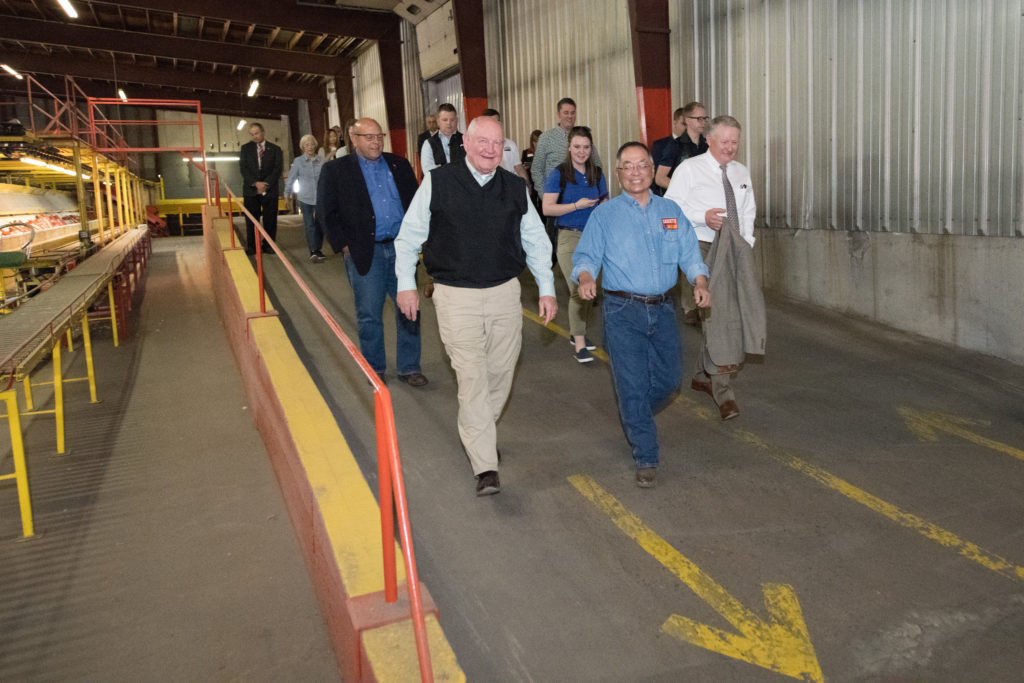

As a leader in Colorado agriculture, Robert Sakata has become a believer that growers need to be able to tell their own story.
Public perception isn’t always favorable. Political powers don’t always understand farming.
“It just goes back to the importance of farmers being willing to open their doors to tell their story about what’s going on,” he said. “I think so many times legislators have good intentions; they just don’t understand the unintended consequences of their actions that they’re taking. It’s on our part to be participating to let them know what those (consequences) might be.”
Growers also need to keep talking to each other. He hopes the Colorado Fruit and Vegetable Growers Association can do more farm-to-farm tours in the future.
“I think we should be proud of what we’re doing,” he said. “Everybody’s location is different; we all do things differently.” Growers will buy a $100,000 piece of equipment and then immediately start cutting and welding on it in order to customize it for their particular farm operation, he joked.
“We’re all trailblazers,” Sakata said.
– Stephen Kloosterman, associate editor














